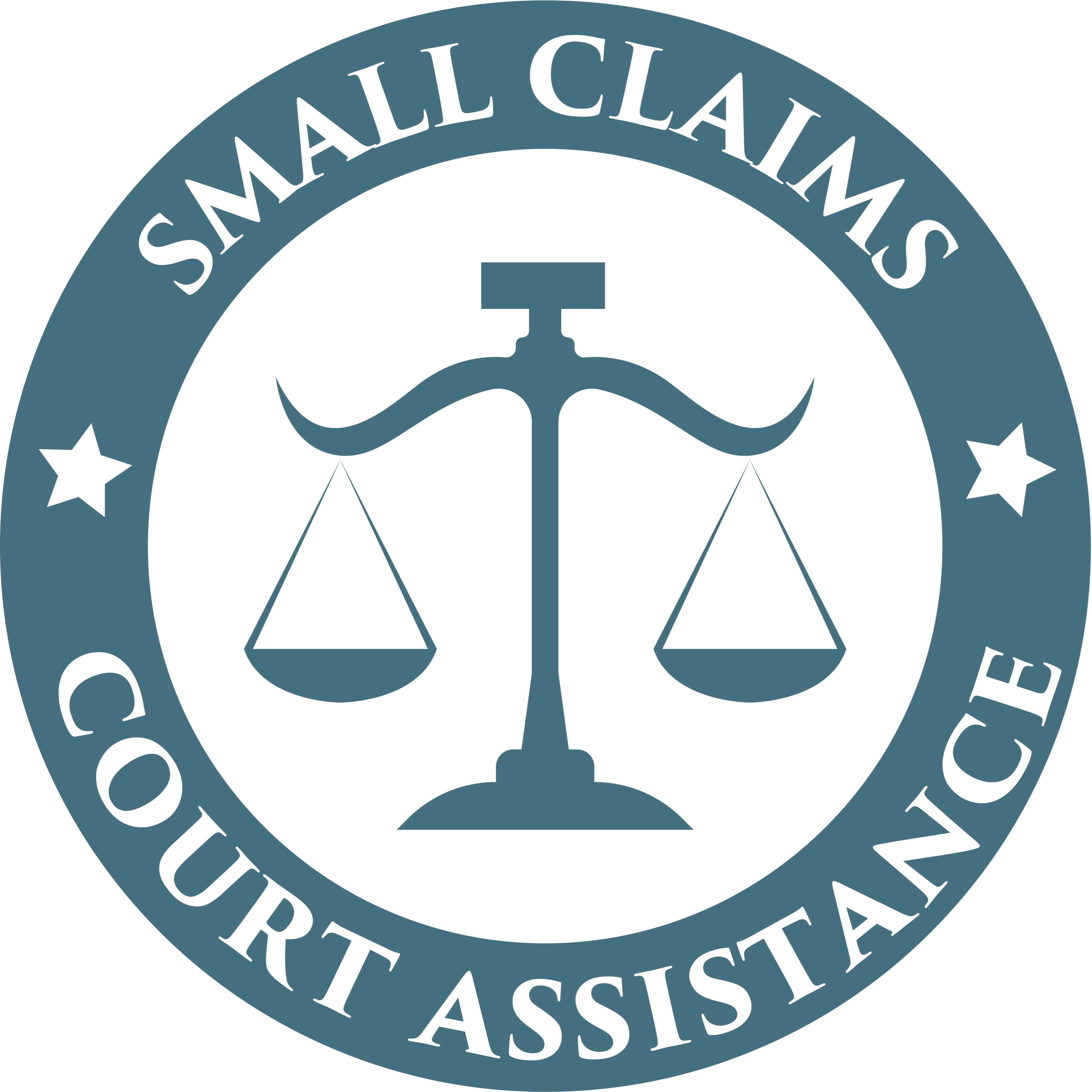Unpaid service charges can be a frustrating reality for many service providers. Whether it’s a client who refuses to pay for services rendered or a customer who neglects to settle outstanding fees, these unpaid charges can have a significant impact on a business’s cash flow and overall financial stability. In this article, we will explore the reality of unpaid service charges and the challenges that service providers face when trying to recover these debts through small claims court. We will also provide tips and strategies for navigating the small claims process and achieving successful resolution.
Key Takeaways
- Unpaid service charges can have a significant impact on a business’s cash flow and financial stability.
- Small claims court provides a legal avenue for service providers to recover unpaid service charges.
- Understanding the types of unpaid service charges and the legal implications is crucial for navigating the small claims process.
- Negotiation, mediation, and alternative dispute resolution methods can be effective in resolving unpaid service charge disputes.
- Enforcing a small claims judgment may require additional steps, such as garnishing wages or placing liens on property.
Understanding Small Claims Court
What is Small Claims Court?
Small Claims Court is a legal avenue for resolving disputes between individuals and businesses. It provides a simplified and cost-effective process for seeking compensation for unpaid service charges. In Small Claims Court, we can present our case without the need for expensive legal representation. This allows us to navigate the legal system more efficiently and with less financial burden.
How does Small Claims Court work?
Small Claims Court is a legal forum designed to resolve disputes between individuals or businesses in a fair and efficient manner. It provides a simplified process for resolving smaller monetary claims without the need for expensive legal representation. In Small Claims Court, the currency of the claim is limited to a certain amount, which varies by jurisdiction. The court’s jurisdiction may also be limited to specific types of cases, such as contract disputes or property damage claims. The goal of Small Claims Court is to provide a accessible and affordable avenue for individuals and businesses to seek resolution for their disputes.
The benefits of Small Claims Court
Small Claims Court provides a faster and more affordable way to resolve disputes. Unlike Civil Court, Small Claims Court is designed for cases involving smaller amounts of money. This means that the process is streamlined and less complex, allowing us to navigate the legal system with ease. By choosing Small Claims Court, we can save time, money, and energy in pursuing unpaid service charges.
Common Issues with Unpaid Service Charges
Types of unpaid service charges
Unpaid service charges can take various forms, including late fees, maintenance fees, and utility charges. These charges are essential for the smooth operation of our business and the provision of quality services to our customers. However, when these charges go unpaid, it can disrupt our supply chain support and create financial challenges for our organization.
Challenges faced by service providers
As service providers, we understand the challenges that come with unpaid service charges. It is important to understand small claims and how they can help us recover what we are owed. However, navigating the small claims process can be complex and time-consuming. We have to gather evidence and documentation to support our case, and then present it in court. It is crucial to have a strong case to increase our chances of success.
In addition, negotiating with the debtor can be a delicate task. We need to find a balance between asserting our rights and maintaining a professional relationship. Mediation and alternative dispute resolution can also be helpful in reaching a resolution without going to court.
Once we obtain a small claims judgment, enforcing it can be another challenge. We may need to explore different options such as wage garnishment or property liens. It is important to be aware of the legal procedures and requirements to ensure a successful resolution.
Legal implications of unpaid service charges
If you decide to proceed with legal action, you will be required to pay the upfront legal costs such as court costs, filing fees, etc. These fees typically range from $600.00 to $700.00, depending on the debtor’s jurisdiction. Upon payment of these funds, our affiliated attorney will file a lawsuit on your behalf for all monies owed, including, but not limited to, the cost to file this action. If our attempts to collect via litigation fail, the case will be closed. You will owe nothing to our firm or our affiliated attorney.
Our rates are:
- Considered The Industry best and are negotiable
Navigating the Small Claims Process
Filing a small claims lawsuit
When it comes to filing a small claims lawsuit, there are a few key steps to keep in mind. First, make sure you have all the necessary documentation and evidence to support your case. This includes any contracts, invoices, or communication records related to the unpaid service charges. Next, submit your claim to the small claims court in your jurisdiction. Be prepared to pay any filing fees required. Once your claim is filed, the court will notify the debtor and set a date for the hearing. It’s important to attend the hearing and present your case clearly and concisely. Remember, the goal is to convince the judge that you are owed the unpaid service charges. If successful, the court will issue a judgment in your favor, and you can proceed with enforcing the judgment to collect the money owed to you.
Gathering evidence and documentation
When it comes to gathering evidence and documentation, we understand the importance of thoroughness and attention to detail. As service providers, it is crucial for us to have all the necessary information and supporting documents to strengthen our case. This includes invoices, contracts, communication records, and any other relevant paperwork. By meticulously organizing and presenting these documents, we can effectively demonstrate the validity of our claims and the extent of the unpaid service charges. Our commitment to professionalism and diligence in this process ensures that we are well-prepared to present our case in court.
Presenting your case in court
After navigating the small claims process and gathering all the necessary evidence and documentation, it is time to present your case in court. This is your opportunity to clearly and concisely state your side of the story and provide the judge with the facts and evidence that support your claim. It is important to be well-prepared and organized for your court appearance. Here are a few key points to keep in mind:
- Be confident and composed: Present yourself in a professional manner and maintain a calm and respectful demeanor throughout the proceedings.
- Clearly articulate your claim: Clearly explain the details of your claim, including the amount owed, the services provided, and any relevant dates or agreements.
- Use visual aids if necessary: If you have any visual evidence, such as photographs or documents, consider presenting them to the judge to help illustrate your case.
- Answer questions confidently: Be prepared to answer any questions the judge may have and provide additional information or clarification when necessary.
Remember, the judge will make a decision based on the evidence and arguments presented, so it is crucial to present your case effectively and persuasively.
Tips for Successful Resolution
Negotiating with the debtor
When negotiating with the debtor, it is important to approach the conversation with a clear understanding of our finances. We should be prepared to discuss the outstanding service charges and any potential payment plans or arrangements. It is crucial to maintain a professional and respectful tone throughout the negotiation process. By finding common ground and exploring mutually beneficial solutions, we can increase the chances of reaching a successful resolution.
Mediation and alternative dispute resolution
In addition to filing a small claims lawsuit, another option for resolving disputes is through mediation and alternative dispute resolution. Mediation allows both parties to come together with a neutral third party who can help facilitate a conversation and find a mutually agreeable solution. This can be a cost-effective and efficient way to resolve conflicts without the need for a formal court process. Small businesses can benefit from the expertise of skilled negotiators who can mediate disputed claims without incurring the costly expense of a private mediator.
Enforcing a small claims judgment
Enforcing a small claims judgment can be a challenging process. After successfully obtaining a judgment in your favor, the next step is to ensure that the debtor actually pays what they owe. However, it’s important to be aware that enforcing a judgment may not always be straightforward. There are various obstacles that can arise, making the process more difficult and time-consuming. It’s crucial to understand the options available to you and the steps you can take to enforce the judgment effectively.
Are you struggling with resolving your debts? Look no further! Our website, Debt Collectors International, is here to provide you with tips for successful resolution. With our expertise in debt collection solutions, we can help simplify the process for you. Visit our website today to learn more and take the first step towards resolving your debts.
Frequently Asked Questions
What is Small Claims Court?
Small Claims Court is a legal venue where individuals and businesses can resolve disputes involving small amounts of money. It provides a simplified and cost-effective process for resolving disputes without the need for formal legal representation.
How does Small Claims Court work?
To initiate a small claims lawsuit, the plaintiff must file a complaint with the court and pay a filing fee. The defendant is then served with a copy of the complaint and has the opportunity to respond. Both parties present their evidence and arguments in court, and the judge makes a decision based on the merits of the case.
What are the benefits of Small Claims Court?
Small Claims Court offers several benefits, including lower filing fees, simplified procedures, faster resolution times, and the ability to represent yourself without formal legal training. It is designed to be accessible and efficient for individuals and small businesses seeking justice for small disputes.
What types of unpaid service charges can be addressed in Small Claims Court?
Small Claims Court can handle a wide range of unpaid service charges, including unpaid invoices, unpaid rent, unpaid utility bills, unpaid contractor fees, and other similar types of debts owed by individuals or businesses.
What challenges do service providers face when dealing with unpaid service charges?
Service providers often face challenges such as difficulty in collecting payment, disputes over the quality of services provided, and the need to navigate the legal process to recover unpaid amounts. They may also face challenges in locating the debtor or dealing with uncooperative debtors.
What are the legal implications of unpaid service charges?
Unpaid service charges can have legal implications for both the service provider and the debtor. The service provider may have the right to take legal action to recover the unpaid amount, which can result in additional costs and damage to the debtor’s credit score. The debtor may face legal consequences such as judgments, liens, or wage garnishment.


Comments are closed